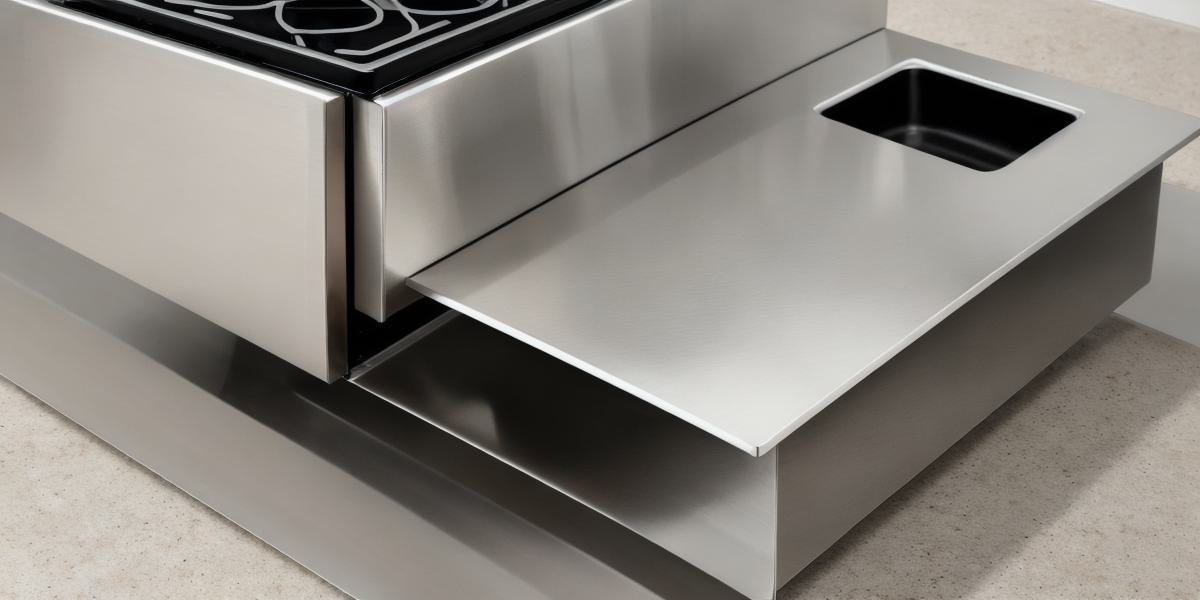Introduction
Starting a catering business can be an exciting and rewarding venture, especially for those who love to cook and entertain guests. However, it is also a challenging journey that requires careful planning, research, and execution. In this article, we will guide you through the process of starting a successful catering business, from market research to marketing strategies.
Market Research
Before starting your catering business, it is essential to conduct market research to understand your target audience, competition, and industry trends. You can start by identifying the types of events and occasions that your catering business will focus on, such as weddings, corporate events, or birthday parties. This will help you determine the type of cuisine and services that you will offer.
Once you have identified your target audience, you should also research your competition to understand their strengths and weaknesses. Look at their menus, pricing strategies, and marketing tactics to identify opportunities for differentiation. Additionally, keep up-to-date with industry trends and innovations by attending trade shows, following food blogs, or joining industry associations.
Business Planning
Now that you have conducted your market research, it’s time to start planning your business. This includes creating a detailed business plan that outlines your goals, target market, services offered, pricing strategies, and financial projections. Your business plan should also include a marketing strategy that outlines how you will promote your catering business and attract customers.
When developing your business plan, it is essential to have realistic financial projections. You should estimate your startup costs, which may include equipment, inventory, and marketing materials, as well as your ongoing expenses, such as rent, utilities, and employee salaries. Additionally, you should develop a pricing strategy that reflects the value of your services while also being competitive in the marketplace.

Cuisine and Services Offered
The next step is to determine the type of cuisine and services that you will offer. When deciding on your menu, it’s essential to consider your target audience’s preferences and dietary restrictions. You may want to offer a variety of options, such as vegetarian or gluten-free dishes, to appeal to a broader range of customers.
You should also consider the types of services that you will provide, such as delivery, setup, and cleanup. Additionally, you may want to offer additional services, such as event planning or photography, to differentiate yourself from your competitors.
Obtaining Licenses and Permits
Before starting your catering business, you will need to obtain the necessary licenses and permits to operate legally. This may include a food service permit, health permit, and business license. It’s essential to research the specific requirements for your location and ensure that you have all the necessary paperwork before starting your business.
Marketing Strategies
Once you have started your catering business, it’s time to focus on marketing strategies to attract customers. This includes developing a website or social media presence, creating promotional materials such as menus and brochures, and attending local events and trade shows to network with potential clients.
It’s also essential to develop a referral program that rewards existing customers for referring new business to you. This can help build loyalty and attract new customers through word-of-mouth marketing. Additionally, offering special promotions or discounts during slow times of the year can help increase your customer base.
Conclusion
Starting a catering business can be an exciting and rewarding venture, but it requires careful planning, research, and execution. By conducting market research, creating a detailed business plan, determining the type of cuisine and services offered, obtaining the necessary licenses and permits, and developing effective marketing strategies, you can build a successful catering business that meets your customers’ needs and exceeds their expectations.
FAQs
- What are the startup costs for starting a catering business?
The startup costs for starting a catering business can vary depending on factors such as location, equipment needs, and marketing materials. However, you should estimate at least $50,000 to cover initial expenses. - What types of services should I offer as a caterer?
As a caterer, you may want to offer additional services such as event planning or photography to differentiate yourself from your competitors. - How do I obtain the necessary licenses and permits to start my catering business?
It’s essential to research the specific requirements for your location and ensure that you have all the necessary paperwork before starting your business. You may need a food service permit, health permit, and business license.



